Part 2
The work of overcoming the consequences of toxic chemicals use by US Army during the war in Vietnam
In 1976, the Government issued a policy to replant the dead rural areas in the South that had been poisoned by the US Army during the war. The program achieved important outcomes. Particularly, vast swamps along the Southern coastline, known as seawater mangrove forests, gradually recovered. What is more, Professor Phung Tuu Boi created an effective method of protecting local tropical forests by planting big commercially valuable imported trees to shade saplings of some kinds of local trees. When the local trees grew up enough, local people could chop off the large trees for commercial purposes.
In October 1980, the Government established the Special Committee (UB 10-80) in charge of investigating poisonous chemicals sprayed by the US Army during the war. The committee was first led by Doctor Hoang Dinh Cau. During the following years, the committee in coordination with institutes, universities, hospitals and experts at home and from the US, France and Canada, conducted numerous scientific research projects. Their research outcomes were then discussed at three big scientific symposiums, two international seminars in 1983 and 1993, and a national-level conference in 1986. In their research, UB 10-80 reaffirmed very serious harms of the dioxin chemical known as Agent Orange that the US Army sprayed onto South Vietnam during the arm. The committee also pointed out various long-time arduous consequences of the lethal poison on the people and environment of Vietnam.
On June 16th, 1997, in Official Document 725- CV/VPTW, the Party Central Committee’s Office conveyed the instructions of the Permanent Board of the Politburo on the aftermath of the poisonous chemicals used by the US Army during the war, saying: “The poisonous chemicals used by the US Army in the war have left various long-time arduous consequences to the environment and people of Vietnam. We should actively and immediately study and give exact and comprehensive assessment of the harms of the poisonous chemicals in order to produce fundamental and comprehensive solutions to the problems.”
On April 3rd, 1998, the Prime Minister issued Decision 74/1998/QĐ-TTg to conduct an overall survey on victims of the poisonous chemicals sprayed by the US Army in the war so as to give guidelines and basic approaches to overcome the consequences of the poisonous chemicals. The survey was conducted nationwide in 1998-1999. The survey targeted those who had lived, worked and fought in the areas polluted by chemicals sprayed by the US Army, particularly the people who currently suffered from critical illnesses due to poisonous chemicals or whose children were born with defects, deformities or/and critical illnesses. Additional surveys on victims of the US-sprayed chemcals were also conducted in 2002 and 2004.
In June 1998, the Government issued Decision 105/1998/QĐ-TTg to found the Fund for Victims of Chemicals under the Vietnam Red Cross with the aim of mobilizing domestic and international supports for AO victims.
On July 30th, 1998, the Permanent Committee of the National Assembly of the 10th term promulgated Ordinance 6/1998/PL – UBTVQH on People with Disabilities, in which Provision 2 of Article 3 articulates: Children who have disabilities due to AO/dioxin shall receive special care and protection from the society and State.

On March 1st, 1999, the National Steering Committee on Overcoming Aftermath of the US-used Chemicals in the War in Vietnam (Steering Committee 33) was founded under Decision 33/1999/QĐ-TTg issued by the Prime Minister. Under the decision, Steering Committee 33 is responsible for drawing up annual plans and long-term plans, as well as for directing and managing all activities of overcoming consequences of the US-sprayed chemicals nationwide.
On February 23rd, 2000, the Prime Minister issued Decision 26/2000/QĐ-TTg on regulations supporting people participating in the war against US invaders who themselves or/and whose children suffered the US-used poisonous chemicals. Under the decision, AO-contracted war veterans received VND 100,000 or VND 88,000 and their AO-contracted children got VND 84,000 or VND 48,000, depending on the levels of their sufferings.
On July 5th, 2002, the Politburo promulgated Announcement 69-TB/TW on basic solutions to the aftermath of the US-used poisonous chemicals during the war in Vietnam. The document says: Overcoming the consequences of AO/dioxin is a time-consuming process but also a current urgent issue. Thus, Party committees should focus leadership on and take more drastic measures to deal with this complex issue. There should be appropriate policies, regulations and investments to support, take care and cure victims of AO/dioxin who used to live, work or/and fought war in AO/dioxin affected areas. The government, Central agencies, branches and local authorities should call on foreign countries, international organizations and non-governmental organizations to assist the country in overcoming consequences of AO/dioxin and render support to victims of AO/dioxin.
On December 17th, 2003, the Vietnam Association of Victims of AO/dioxin (VAVA) was established under Decision 84/2003/QĐ-BNV. On January 10th, 2004, the association made its debut, starting its missions of protecting legitimate rights and interests of Vietnamese AO victims and representing them to request the US side to contribute to overcoming consequences of the US Army-caused AO/dioxin disaster, as well as of mobilizing domestic and international resources to take care and support AO victims.
On February 5th, 2004, the Prime Minister issued Decision 16/2004/QĐ-TTg on providing support for families with two and more people unable to take care of themselves due to AO/dioxin.
On April 27th, 2004, the second phase (2004-10) of the Plan on Overcoming the Aftermath of Toxic Chemicals Sprayed in Vietnam by the US Army during Wartime was approved under Decision 67/2004/QĐ- TTg signed by the Prime Minister.
On July 5th, 2004, the Prime Minister issued Decision 120/2004/QĐ-TTg on support policies for war veterans and their children suffering from AO/dioxin related illnesses.
On May 16th, 2005, the Government issued Decree 63/2005/ NĐ-CP on Health Insurance Provisions, regulating that those who are children of war veterans working, living and operating in AO/dioxin polluted areas in wartime and have deformities or/and inborn, disabilities and defects as a result of AO/dioxin will receive monthly allowances and are compulsory to have medical insurance [local authorities must provide medical services for them].
On May 23rd, 2005, the Prime Minister issued Decision 65/2005/QĐ-TTg on support policies for children with disabilities and deformities due to AO/dioxin/
On June 29th, 2005, the Permanent Committee of the National Assembly promulgated Ordinance 26/2005/ PL-UBTVQH11 on Supporting Revolution Contributors, articulating that revolutionary veterans infected by poisonous chemicals and their children with deformities, defects and incapable of working and living as a normal person are subject to support policies for revolution contributors. This decree marked a new development in the Party, State’s policies for revolutionary/war veterans suffering AO/dioxin consequences.
On May 26th, 2006, the Government issued Directive 54/2006/NĐ-CP guiding the implementation of Ordinance 26/2005/ PL-UBTVQH promulgated by the Permanent Committee of the National Assembly on June 29th, 2005.
On July 26th, 2006, the Ministry of Labor, Invalids and Social Affairs issued Circular 07/2006/TT- BLĐTBXH instructing revolutionary and war veterans to compile their dosiers for support policies.
November 21, 2006, the Ministry of Labor, Invalids and Social Affairs and Ministry of Finance issued Intersectoral Circular 17/2006/ TTLT-BLĐTBXH-BTC-BYT detailing and guiding the implementation of regulations on health care for revolution contributors.
March 2nd, 2007, the Government issued Decree 32/2007/NĐ-CP raising allowances for war veterans exposed to AO/dioxin, much higher than than articulated in Decision 26/2000/QĐ-TTg made by the prime Minister on February 23rd, 2000, based on the country’s economic growth.
On April 13th, 2007, the Government issued Decree 67/2007/NĐ-CP on policies for social support recipients.
On Novemeber 25th, 2007, the Ministry of Labor, Invalids and Social Affairs issued Circular 25/2007/TT-BLĐTBXH on supplemented policies for revolutionary veterans.
On February 28, 2008, the Ministry of Health issued Decision 09/2008/QĐ-BYT on the list of illnesses related to AO/dioxin.
On April 7th, 2009, the Ministry of Labor, Invalids and Social Affairs issued Circular 08/2009/TT-BLĐTBXH, amending and supplementing Artile VII of Circular 07/2006/TT-BLĐTBXH issued by the ministry on July 26th, 2006 on compiling dosiers of national contributors for support policies.
On December 18th, 2009, the Secretariat of the Party Central Committee issued the Statement on Conclusion 292- TB/TW made by the Party Central Committee on surmounting consequences of toxic chemicals sprayed by the US Army in the South in wartime; supporting and caring for AO victims; establishing the Vietnam Association of AO Victims (VAAV). The document says, “The work of overcoming consequences of toxic chemicals sprayed by the US Army in the South in wartime is a long-run but also important and urgent mission. Thus, local Party committees and authorities at all levels should enhance leadership and direction as well as take concrete measures to effectively implement this mission...” “VAAV is a special social organization, which performs political and social tasks assigned by the Party and State.”
On February 27th, 2010, the Government issued Decree 13/2010/NĐ-CP with amendments and supplements to Decree 67/2007/NĐ-CP issued on April 13th, 2007) on support policies supporting war and revolutionary veterans.
On April 6, 2010, Government issued Decree 35/2010/NĐ-CP increasing the monthly allowance for war veterans exposed to toxic chemcals to a level almost the same as that for war veterans with illnesses.
On May 14th, 2010, the Government issued Decree 49/2010/NĐ-CP regulating tution fees, schooling supports for policy beneficiaries and collection and use of tution fees at all public education levels from the 2010-11 academic year to the 2014-15.
On August 18th, 2010, the Ministry of Labor, Invalids and Social Affairs and the Ministry of Finace issued Intersectoral Circular 24/2010/TTLT-BLĐTBXH-BTC guiding the implementation of Decree 13/2010/ NĐ-CP dating February 27th, 2010.
On November 15, 2010, the Ministry of Education and Training, the Ministry of Finace and the Ministry of Labor, Invalids and Social Affairs issued Intersectoral Circular 29/2010/TTLT - BGDĐT - BTC – BLĐTBXH guiding the implementation of the clauses involving AO victims articulated in Decree 49/2010/NĐ-CP issued on May 14th, 2010, on tution fee exemption, schooling support and collection and use of tution fees at all public education levels from the 2010-11 academic year to the 2014-15.
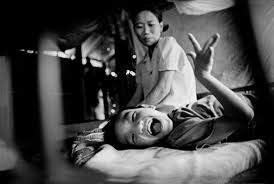
On January 6th, 2011, the Secretariat of the Party Central Committee issued Announcement 409/TB/TW on the organization of events and activities to mark 50 years of the AO/dioxin disaster in Vietnam, underlining the importance of comprehensively assessing and analyzing the danger and scale of losses caused by the US chemical warfare to human health and environment in Vietnam.
On June 30, 2011, the Government issued Decree 52/2011/NĐ-CP regulating allowances for revolution contributors.
On April 9, 2012, the Ministry of Labor, Invalids and Social Affairs issued Official Document 1040/ BLĐTBXH-NCC guiding the implementation of policies for war veterans exposed to toxic chemicals.
On May 28th, 2012, the Government issue Decree 47/2012/NĐ-CP regulating levels of allowances and supports for revolution contributors.
On June 1st, 2012, the Prime Minister issued Decision 651/QĐ-TTg approving the National Plan on Basically Surmounting the Consequences of Toxic Chemicals Used by the US Army during the War in Vietnam by 2015 with a Vision toward 2020.
On July 16, 2012, the Permanent Committee of the National Assembly issued Ordinance 04/2012/ UBTVQH-13 on amendments and supplements to the previous decree on preferential treatment for revolution contributors. The new decree basically amended inadequacies in the previous one, creating high consensus among war and revolutionary veterans and the people as a whole. Article 26 of the decree defines, “War and revolutionary veterans exposed to toxic chemicals are all those who have been confirmed by competent agencies to work, and particpate either directly or indirectly in the war from August 1961 to April 30th, 1975, in the areas polluted with toxic chemicals sprayed by the US Army, and who have been exposed to the toxic chemcals, which leads to illnesses losing their work ability of 21% and above, childlessness or their children with deformities, defects, disabilities or/and related diseases.”
On April 9th, 2013, the Government issued Decree 31/2013/NĐ-CP detailing and guiding the implementation of the Decree on Preferential Treatment for Revolution Contributors.
On May 15th, 2013, the Ministry of Labor, Invalids and Social Affairs issued Circular 05/2013/TT-BLĐTBXH guiding the compilation of dosiers and implementation of preferential policies for revolution contributors.
On February 14th, 2015, the Government issued Decree 20/2015/NĐ-CP regulating levels of allowance for revolution contributors with the benmark allowance of VND 1,318,000 per month, and the regulation on the new levels of allowance will take effect from April 1st, 2015.
Under the degree, war veterans who lost 81% and above of the work ability due to being exposed to toxic chemicals enjoy a monthly allowance of VND 3,005,000, and a mothly benefit of VND 661,000. Those who suffer from especially serious illnesses receive a monthly allowance of VND 1,318,000. Those who lost 61-80%, 41-60% and 21-40% of the work ability get a mothly allowance of VND 2,346,000, 1,673,000 and 1,001,000, respectively.
On May 14th, 2015, the Secretariat of the Party Central Committee issued Decree 43-CT/TW on enhancing the Party’s leadership over the work of overcoming consequences of toxic chemicals used by the US Army in Vietnam. The decree says, “As the toxic chemicals used by the US Army during the war in Vietnam have left negative impacts on people’s health and environment, the work of overcoming the consequences is a long-run but urgent mission, which is responsibility of every Party committee, government, cadre, Party member and organization of the political system.”
In implementing Decree 43, on August 2nd, 2016, the Ministry of Information and Communications issued Official Document 2608/BTTTT-TTCS tasking nationwide press and media agencies, as well as information and communications departments of all provinces and cities in close coordination with VAAV and its local affiliates, local commissions of education and information, local branches of the Vietnam Fatherland Front and other local political and social organizations to develop plans on information dissemination and public education so as to raise the public’s awareness and responsibility for the work of overcoming the consequences of toxic chemicals used by the US Army in Vietnam.
Colonel Ngo Khac Ky







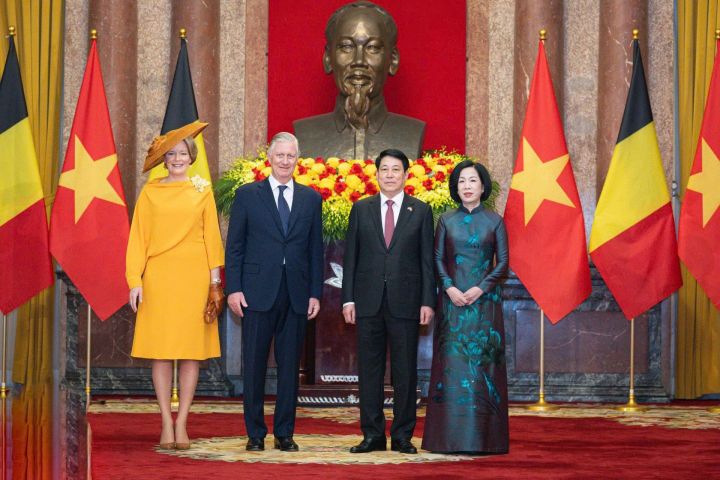
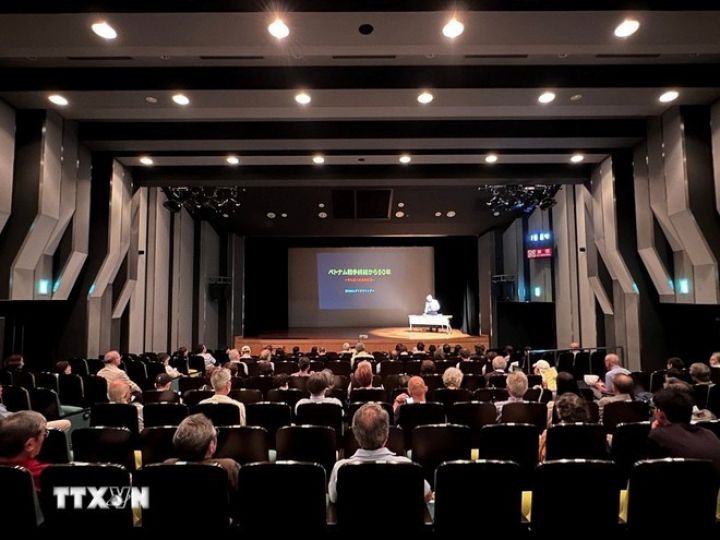

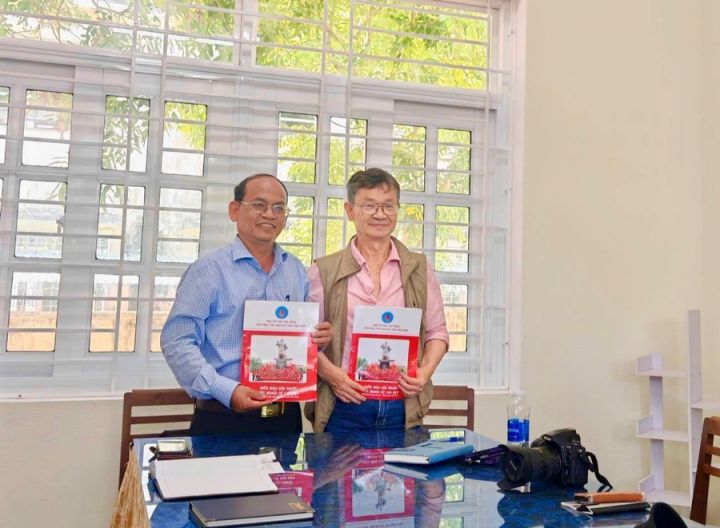
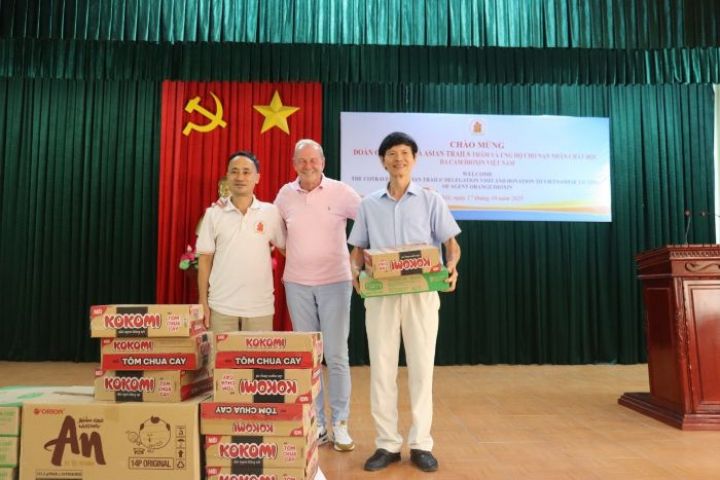
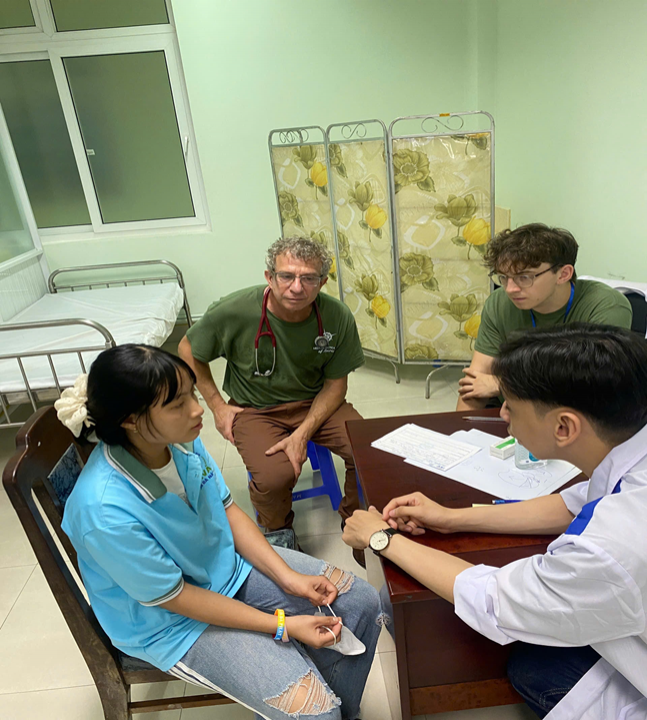










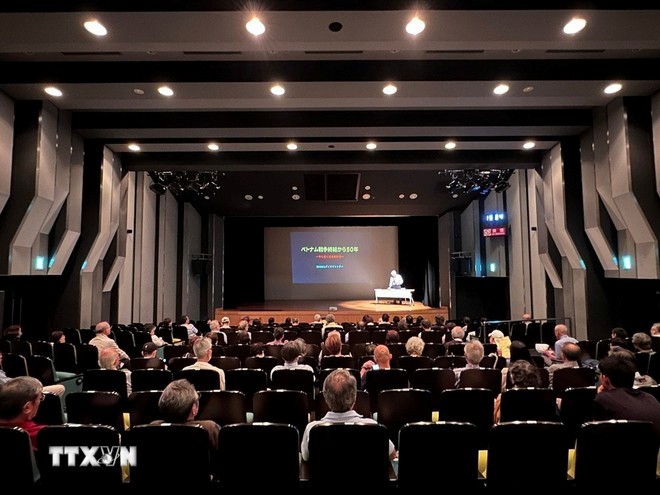
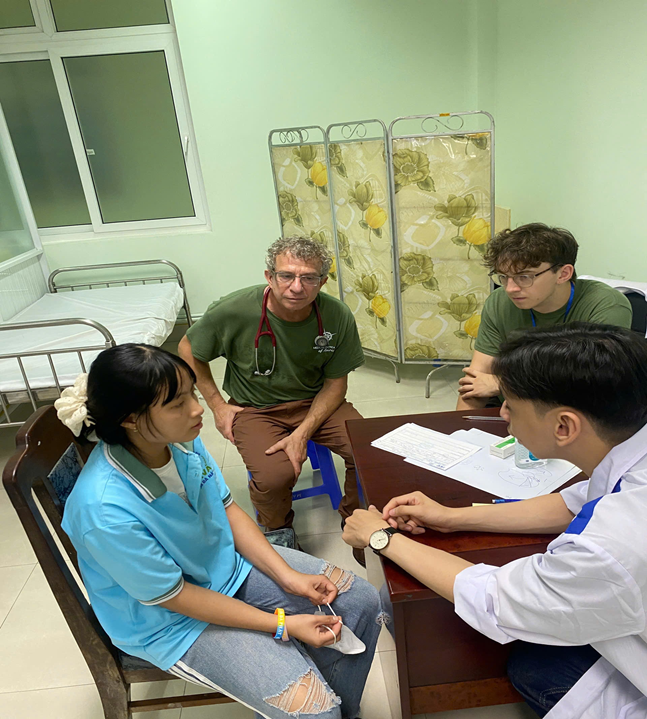
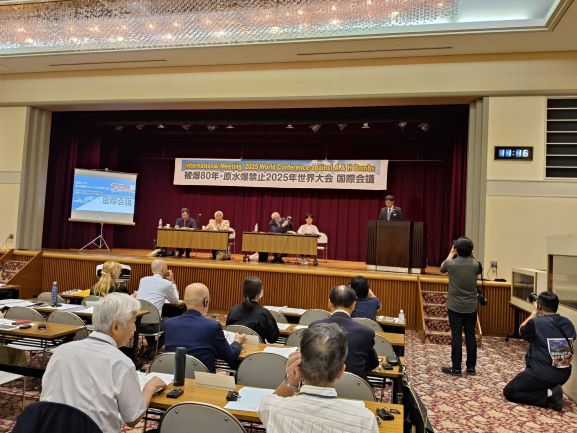
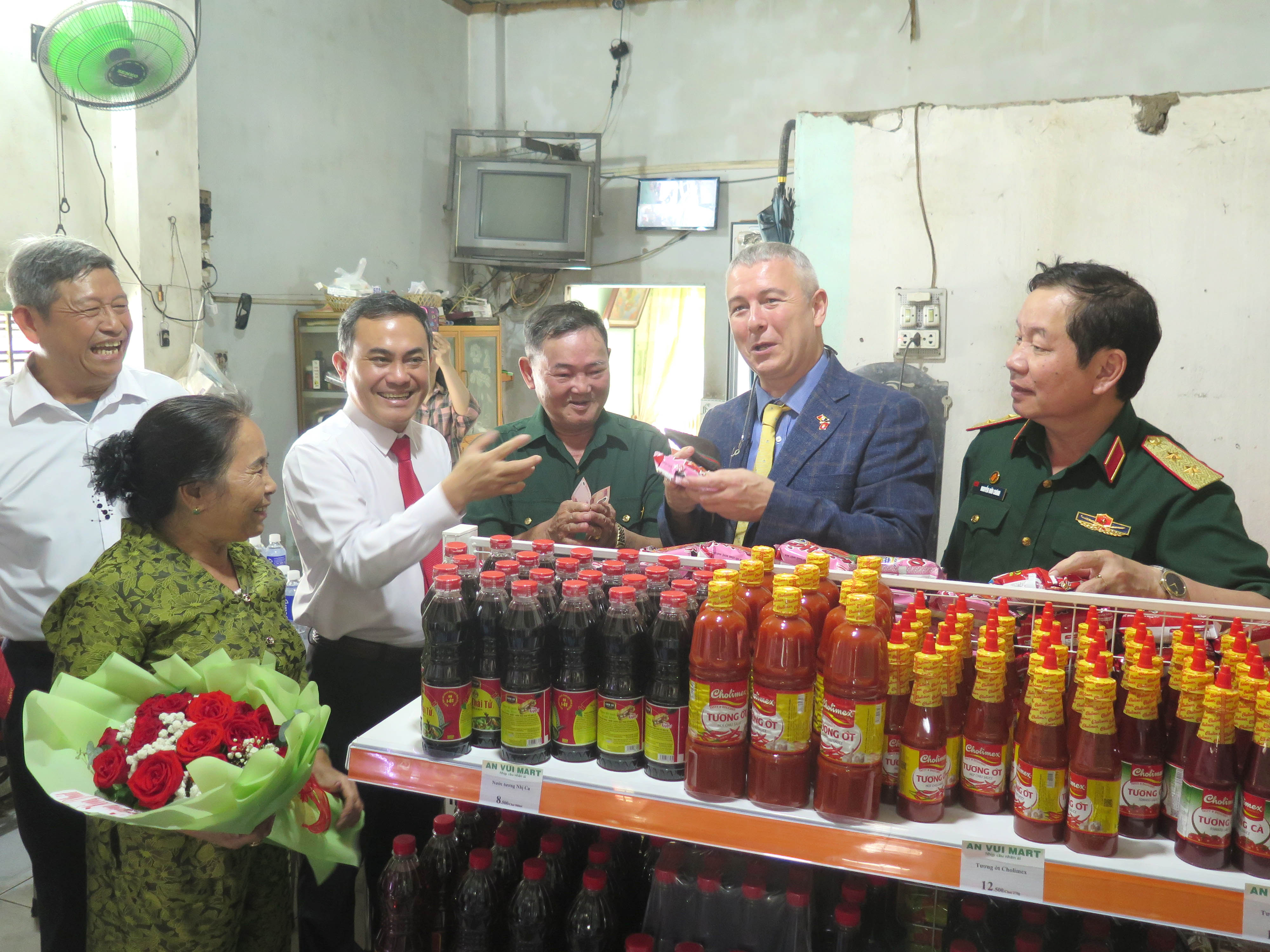
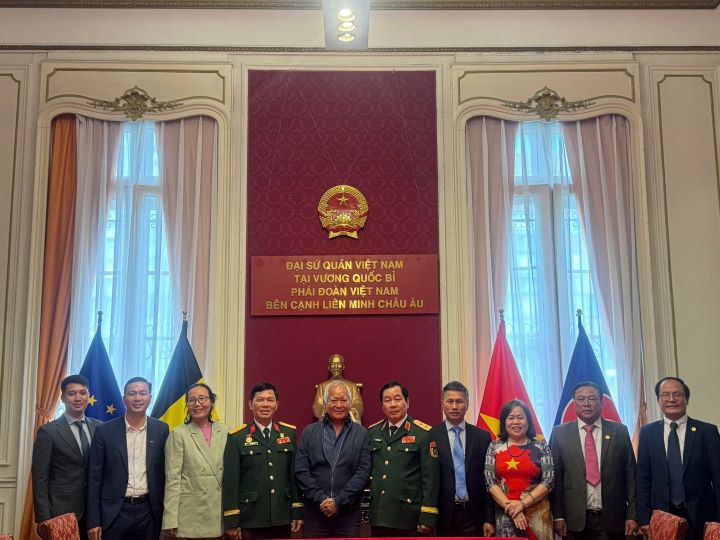
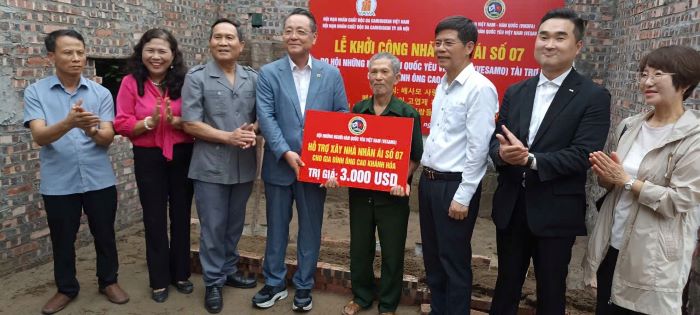


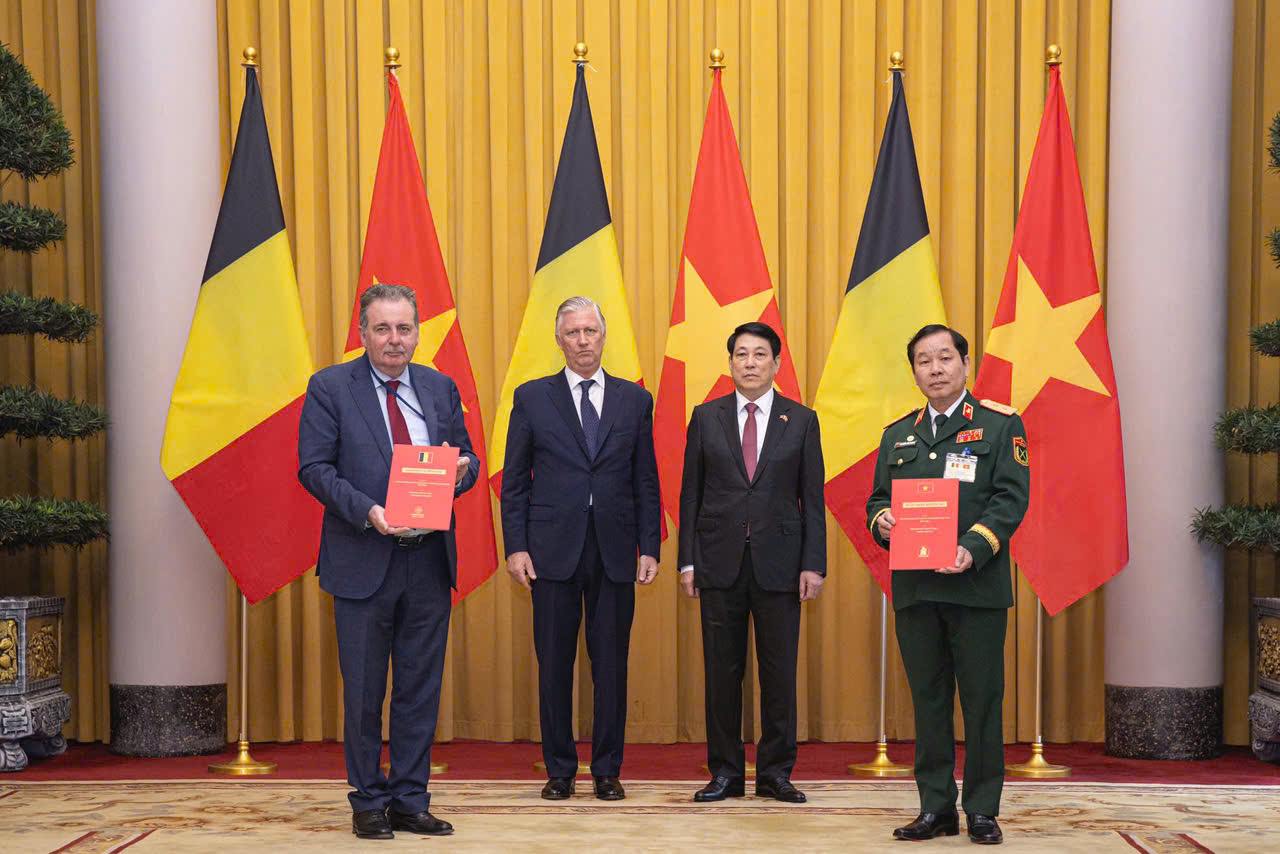

Comment